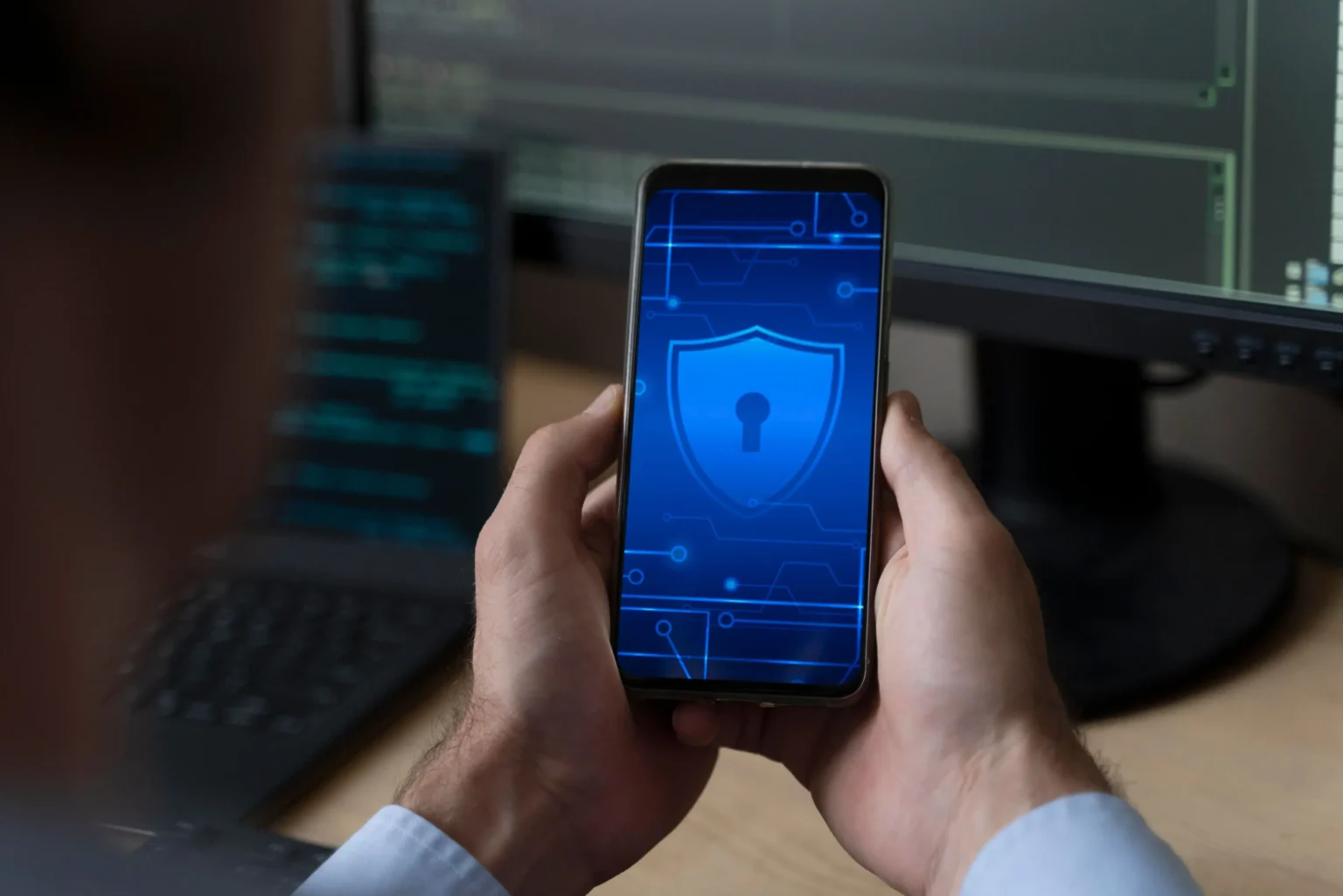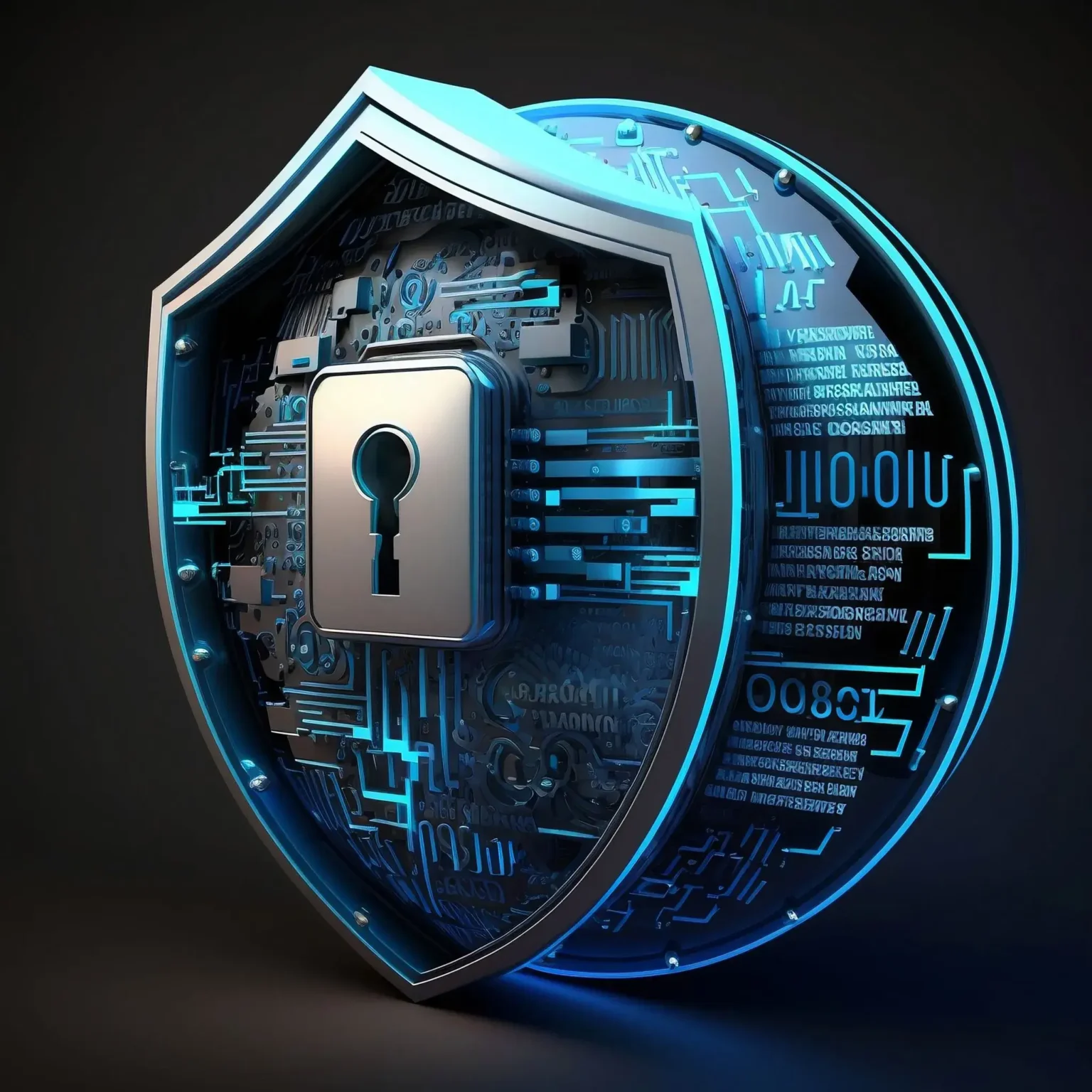Table of Contents
Welcome! You’ve found the right page! These days, we must be super careful online. As a full time digital nomad with a lot of valuable data online, I've learned a few things the hard way.
That's why I put this page together to help others like you not have to go through what I have. Follow these 10 steps to get rock solid online privacy and security!
Let's get right into it!
1. Adopt Password Management Best Practices

First up, you need to secure your passwords. Believe me, I learned the hard way. If you don’t keep your passwords secure, like, if you use the same password on every website, or if you don’t use complex passwords, you place yourself in serious risk. Hackers can easily take advantage of these sloppy password practices and take over your online accounts.
While web browsers like Chrome or Firefox allow you to save passwords in their built-in password managers, they lack the level of security and capabilities of full-fledged password managers.
2. Secure your connection to the internet with a VPN

As a digital nomad, I need security, privacy, and to stream content from around the world. I'm often connecting to public wifi, which is usually where hackers lurk to intercept financial data, IP addresses, and many others—even carefully crafted passwords. Not only that, I sometimes find myself in surveillance states like in China, where ISPs can be compelled to turn over customer data to government authorities.
That’s why I’ve been using VPNs for over 10 years now. The best VPNs are very good at protecting the confidentiality of your online data from anyone. VPNs can also help you access geo-blocked streaming content like on Netflix, Amazon Prime, Disney+, and more.
These are the best overall VPNs out there right now:
- ExpressVPN,
- NordVPN, and
- SurfShark
3. Use a secure, private email service

Regular email is just not going to cut it. If you use regular email (like Gmail) you’re leaving your inbox open to abuse. It could be accessed by your email provider, authoritarian governments, or cybercriminals.
To ensure that the emails I send and receive are only visible to me and the people I communicate with, I use email services that prioritize security and privacy over everything else.
So far, I’ve been very satisfied with two email services and I’d like to share my firsthand experiences of them with you:
4. Protect yourself with a secure web browser

Most mainstream browsers are horrible at protecting our security and privacy. They can’t prevent hackers from stealing our data nor can they block ads and malicious websites. While most popular browsers aren’t designed to do that, some browsers are.
I use secure web browsers to block unwanted ads, avoid getting tracked, and protect my online data.
These are the best secure browsers out there right now:
5. Protect your devices from viruses and other malware

With hundreds of thousands of new malware released every single day, it’s possible to be exposed to them almost anywhere—the sites we visit, the ads we see, the email we receive, the apps and files we download, and so on.
I can’t afford to have my devices locked up, my data stolen, or my precious video files wiped out, so I'm always using a solid antivirus program.
That’s why I’ve painstakingly researched and tested various antivirus programs to find the best:
6. Only use encrypted messaging apps!

Messaging apps linked to popular social media sites are notoriously bad at protecting personal data. Some have a history of accidentally leaking private conversations. Others are even known to sell data to advertisers and oppressive governments.
That’s why I stick with encrypted and privacy-focused messaging platforms. Not only do these platforms protect my messages from prying eyes, they also don’t track my online activities or hound me with ads.
7. Keep ads away even while using your favorite browser

Ads aren’t only annoying. Some ads can actually infect your device with malware. If you prefer to stick with your favorite web browser, you can still get rid of ads and trackers by using ad blockers.
Ad blockers used to be my workaround against tracking before I discovered secure web browsers.
If you want to keep using your favorite browser but don’t want to be tracked, check out these top ad blockers:
8. Store files in secure cloud-based storage

Storing files in physical devices like hard drives and USB drives is risky. If these devices are lost or stolen, you would also lose your files. Also, because these devices have limited capacities, you have to purchase more of them, which increases the chances of them getting misplaced or stolen.
That’s why I use cloud-based storage. Not only is this method safer, it also has unlimited capacity. Plus, I can access my files anywhere without having to carry a bunch of drives.
Check out the best online storage sites below:
9. Make sure to use multi-factor authentication (2FA)

These days, even with strong and secure passwords, hackers can still employ various techniques like social engineering and credential stuffing to steal them.
I reinforce my passwords with additional methods a.k.a. dual factors of authentication, like SMS, One-Time Passcodes (OTPs), biometric scans, etc. That way, even if hackers manage to steal or guess my password, they still have to go through one or more verification steps.

